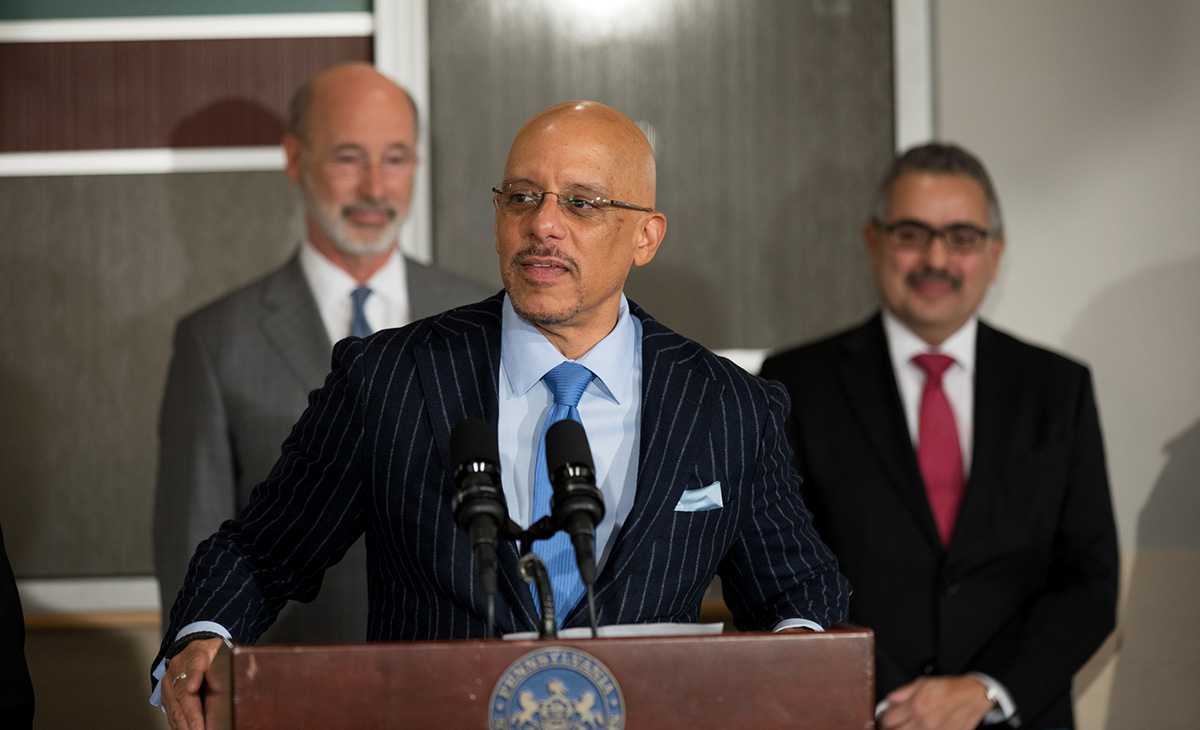Philadelphia working to mitigate effects on communities

As of 8:15 a.m. Monday, there are 76 confirmed cases of coronavirus COVID-19 in Pennsylvania. Montgomery County remains the epicenter of the state’s cases with 30. All non-essential businesses and services have been closed as a result.
There are eight confirmed cases of the virus in Philadelphia. As of 5 p.m. Monday, all non-essential city businesses will be closed in Philadelphia. Essential businesses that will remain open include grocery stores, big box stores, pharmacies, gas stations, electronic stores, hardware stores, daycare centers and laundry facilities.
In a change to its original plan of distributing meals to students, the School District of Philadelphia has announced 50 recreation centers will be open from 2 p.m. to 6 p.m. for meal distribution only. The school district has made supplemental lesson plans available through March 27, which can be viewed here.
Philadelphia has taken the bold step of suspending evictions for at least two weeks, as city officials look to find ways to help its most vulnerable residents. SEPTA has adjusted its schedules and is offering refunds for some rides.
Montgomery County is doing the same.
Gov. Tom Wolf has recommended all non-essential businesses across the state beginning at 12:01 a.m. Tuesday. We ask that you remain calm and follow directives from local, state and federal officials. This includes using sound judgement in buying essential items to prevent strain on our supply chain.
Senator Hughes and his colleagues in the Pennsylvania Senate Democratic Caucus are working to ensure state-level resources get to our people, especially the most vulnerable. We will provide more information as it becomes available. Visit senatorhughes.com/coronavirus for the latest updates.
In the meantime, here are some reminders about preventing spread of the disease:
Best practices to plan, prepare for and respond to the coronavirus COVID-19, according to the Centers for Disease Control.
What are the symptoms of coronavirus?
Symptoms of the COVID-19 can include:
- Fever
- Cough
- Shortness of breath
The symptoms may appear in as few as two days or as long as 14 days after exposure. Reported illnesses have ranged from people with little to no symptoms to people being severely ill and dying.
What to do if you think you have coronavirus COVID-19, according to the CDC:
- Stay home except to get medical care
- Separate yourself from other people and animals in your home
- Call ahead before visiting your doctor
- Wear a facemask if you are sick
- Cover your coughs and sneezes
- Clean your hands often
- Avoid sharing personal household items
- Clean all “high-touch” surfaces everyday
For more details on what to do prevent coronavirus COVID-19 spread, visit the CDCs full list of recommendations.

